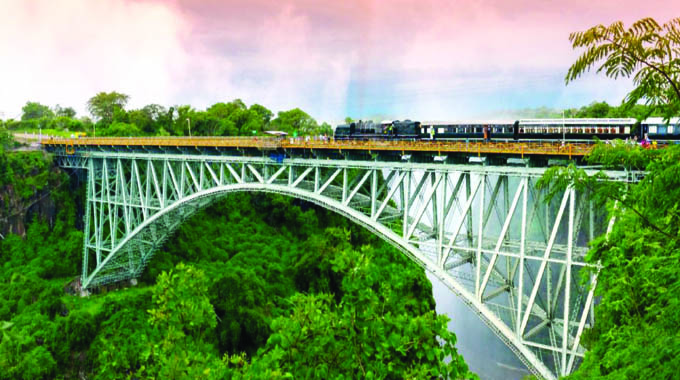Victoria Falls: Aiming for sustainable tourism growth, collaboration
ZIMBABWE’S premier resort city, Victoria Falls, says it will continue to rope in all key stakeholders on board, to ensure they fly high the country’s international tourist destination status based on the judicious and sustainable exploitation of the unique natural endowments, culture, heritage and the built environment.
The City of Victoria Falls is home to “Mosi-oa-Tunya/Smoke that Thunders”, a unique waterfall on the Zambezi River in Southern Africa, which provides habitat for several species of plants and animals.
It is located on the border between Zambia and Zimbabwe and is one of the world’s largest waterfalls and is counted, among the Seven Natural wonders of the World.
The city is the gateway into the country and it helps in building the brand Zimbabwe.
In a recent interview, at the 65th edition of the Zimbabwe International Trade Fair (ZITF) 2025, Victoria Falls public relations officer, Mr Leonard Ncube, said they were impressed by keen interest in tourism aspects of the city.
“During the recent flagship premier trade showcase, we brought along tourism business as our economic mainstay. The local Gross Domestic Product (GDP) in Victoria Falls is tourism, which even employs close to around 90 percent of the workforce.
“Most of the things people were enquiring about was the issue of land for residential and commercial businesses, as well as tourism and investment in terms of opportunities in the hotel or lodge accommodation sector,” he said.
He said Victoria Falls, with a designated Special Economic Zone (SEZ) status in tourism and finance, is working tirelessly to ensure it promotes the city’s GDP growth.
Mr Ncube said to remain as a pristine destination as much as possible, they were calling for key stakeholders’ collaboration.
“We can only do that when we rope in everyone on board. The growth of tourism in Victoria Falls resonates with the city’s vision to be a smart and sustainable destination of choice by 2030. When tourism moves a step, the city also moves a step,” he said.
“Also, in terms of revenue collection for the local authority, those people who pay bills to the city are the people in the tourism industry as well as other sectors.”
He said what is strategic about the city is that it is also housing the Victoria Falls Stock Exchange, the only United States Dollar’s denominated bourse in Southern Africa and the Victoria Falls International Airport, which has the capacity to handle between 1,5 million and 2 million passengers per annum.
Mr Ncube said the airport’s expansion and upgrade have been critical in attracting several acclaimed airlines, while several upgrades were also in the pipeline, according to the Airports Company of Zimbabwe (ACZ).
He added: “We have an organisation that has adopted certain sections of the city to clean them, not only once a month but every day. There also is culture, gastronomy and traditional cuisines that positively contribute to tourism in Victoria Falls and attract more tourists.”
This resulted in the city successfully hosting the First Regional Forum on Gastronomy Tourism for Africa last year in July, while Zimbabwe and the UN Tourism concluded an agreement to set up a Culinary Academy in Victoria Falls, with the facility targeted to open its doors in 2028.
Mr Ncube said Zimbabwe’s tourism policy has incorporated culture, culinary (local cuisines), religion and sport products that the Government through the Ministry of Tourism and Hospitality Industry was promoting and as a city, they were also alive to these aspects.
He said they were also keen on further developing their Victoria Falls destination through the “We are Victoria Falls Initiative” twinning arrangement with Cape Town, in South Africa, to market the two destinations together.
“This twinning arrangement focuses on tourism development and collaboration. The partnership aims to promote and uplift tourism within an African context, inspiring travel between the two destinations and sharing learnings and successes with other African countries. This includes designing activities to support better destination management and marketing efforts,” he said.
“From a provincial perspective, there is the Trans-Limpopo Spatial Development Initiative, made of provincial councils from the Matabeleland region and Limpopo province in South Africa.”
Mr Ncube said arrangement with the Limpopo Province in South Africa and Matabeleland region provinces that include Matabeleland North, Matabeleland South and Bulawayo ensures they all work together to promote various economic clusters and centres in their respective areas.-herald











